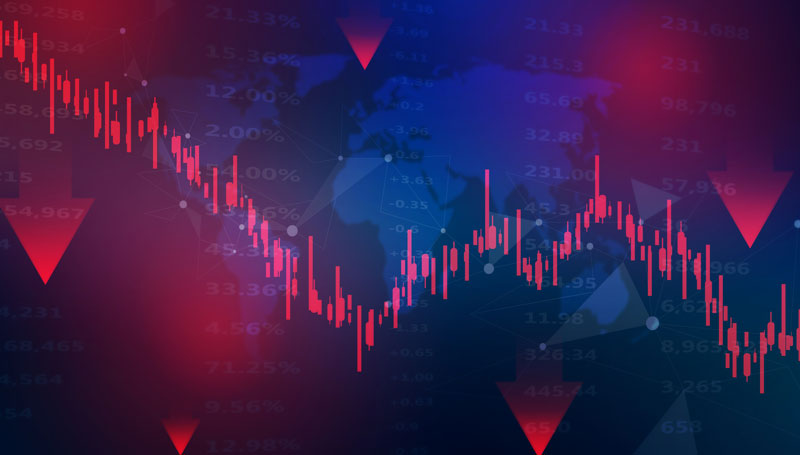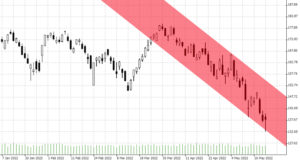

23.05.2022 – It’s official: the stock market has entered a bear market. The broad Wall Street has corrected by 20 percent since the all-time high in January. Even Friday’s late recovery does little to change that. But the night is darkest just before sunrise. Already the first experts have spoken with hope signals for all bulls.
Those were hard days for all long-invested Trader and investors: The Dow Jones submitted according to the financial blog ZeroHedge full eight loss weeks in a row – the longest negative series since 1923! In the SPX the thing becomes even more drastic on short term: On 01 April the S&P 500 stood with 4,546, on Friday it went down up to 3,901 – a pretty loss of 14.2 per cent in only one and a half months. In addition, the index had broken through the “Maginot line” at 3,855 in the meantime and was at the level of March 2021. The SPX had thus joined the Russell 2000 and the Nasdaq (both nearly minus 30 percent). Only the energy sector bucked the trend, down about 5 percent. Super-techs like AAPL, AMZN, GOOG, NFLX, and TSLA saw the biggest losses.
Apple as trend barometer
It is interesting to note how stringent Apple’s recent move has been. First, after digesting the Ukraine shock, it consistently went up – all white candles in the daily chart from the first week of March. And in the correction since the end of March, the bear market was quite reliable.

Source: Bernstein Bank GmbH
JPMorgan sees rebalancing
And with that, we’ll let the bulls have their say. A statement from investment bank JP Morgan just made us sit up and take notice. On the one hand, analyst Nick Panigirtzoglou considered at least a short term bounce possible. The reason: by the end of May, JPM sees $34 billion to $56 billion in stock purchases on the horizon. The reason, he said, is rebalancing at large mutual funds. In other words, customer funds need to be invested, and with the lower prices for equities, there is too much cash to match.
And Norges Bank has also sounded the same horn: According to this, by the end of the quarter, around 40 additional billion dollars are likely to flow into shares from investment funds in the USA – and a further 136 billion dollars from pension funds. So there is an investment backlog that needs to be cleared.
US economy not quite so weak
In addition to the quants, trader Andrew Tyler, also from JPMorgan, also expressed a bullish opinion. According to him, the US economy is doing better than many believed – there is a divergence between the economy and the financial markets. It will take a while before the two are in harmony. Further downward pressure is to be expected, but equities and commodity-related assets are the best investments for any time horizon. In addition, tech will move the market down or up, he said; these stocks are challenging, but offer trading opportunities for short-term traders.
Translation: in the meantime, sentiment is worse than the situation, which means the downtrend is overdone. Which should eventually show up in corporate earnings. We are curious – Bernstein Bank wishes successful trades and investments!
Important Notes on This Publication:
The content of this publication is for general information purposes only. In this context, it is neither an individual investment recommendation or advice nor an offer to purchase or sell securities or other financial products. The content in question and all the information contained therein do not in any way replace individual investor- or investment-oriented advice. No reliable forecast or indication for the future is possible with respect to any presentation or information on the present or past performance of the relevant underlying assets. All information and data presented in this publication are based on reliable sources. However, Bernstein Bank does not guarantee that the information and data contained in this publication is up-to-date, correct and complete. Securities traded on the financial markets are subject to price fluctuations. A contract for difference (CFD) is also a financial instrument with leverage effect. Against this backdrop, CFD trading involves a high risk up to the point of total loss and may not be suitable for all investors. Therefore, make sure that you have fully understood all the correlating risks. If necessary, ask for independent advice. CFDs are complex instruments and are associated with the high risk of losing money quickly because of the leverage effect. 68% of retail investor accounts lose money trading CFD with this provider. You should consider whether you understand how CFD work and whether you can afford to take the high risk of losing your money.7
